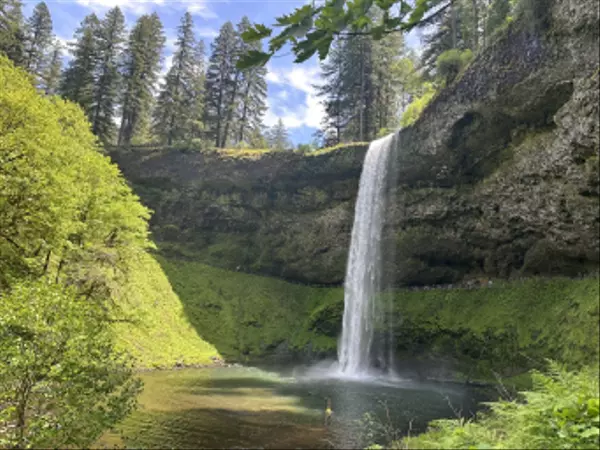Exploring the Neighborhoods and Lifestyle of Portland, Oregon: A Comprehensive Area Guide

Exploring the Neighborhoods and Lifestyle of Portland, Oregon: A Comprehensive Area Guide Portland, Oregon is a vibrant and diverse city located in the Pacific Northwest region of the United States. Known for its stunning natural beauty, thriving arts scene, and progressive culture, Portland has become a popular destination for people looking to relocate. If you're considering making a move to Portland, it's essential to have an overview of the Portland metro area and familiarize yourself with its neighborhoods, transportation options, and lifestyle factors. The Portland metro area encompasses several cities and neighborhoods, each with its own unique characteristics. The area is divided into five main regions: North Portland, Northeast Portland, Southeast Portland, Northwest Portland, and Southwest Portland. Let's take a closer look at each of these areas and what they offer. North Portland: North Portland is an up-and-coming neighborhood with a lot of potential. It's known for its beautiful St. John's Bridge, which is considered one of the prettiest bridges in the city. Cathedral Park, located in North Portland, is a favorite spot for residents to relax and enjoy the outdoors. The area has experienced revitalization in recent years, making it an attractive option for those looking for an urban lifestyle. Northeast Portland: Northeast Portland is a bustling neighborhood with a mix of urban and residential areas. It features older homes, a flat landscape, and a vibrant city living atmosphere. Mount Tabor, Woodstock, and Sellwood Moreland are popular neighborhoods in this region, offering a variety of housing options. The west side of Northeast Portland is more walkable and bike-friendly, with easy access to bars, restaurants, and entertainment venues. Southeast Portland: Southeast Portland is known for its diverse neighborhoods and vibrant community. Mount Tabor, located in Southeast Portland, offers beautiful views and hiking opportunities. The area is a mix of urban and suburban living, with smaller city blocks and a more commutable layout. It's home to several trendy neighborhoods, including Woodstock, Sellwood Moreland, and Hawthorne, where you'll find a wide range of dining, shopping, and entertainment options. Northwest Portland: Northwest Portland is a hilly and suburban area with unique neighborhoods and plenty of green spaces. Bethany is one of the notable neighborhoods in this region, experiencing significant development. Forest Park, the largest city park in the Portland metro area, offers miles of hiking trails and a chance to immerse yourself in nature. The elevation in this area can be high, and some roads may close during winter due to snow. Southwest Portland: Southwest Portland is another hilly region with a more suburban feel. The neighborhoods in this area are characterized by larger lots and a more spread-out shopping experience. Compared to the east side, the west side of Portland has seen more new construction. The area is known for its natural beauty and provides a tranquil living environment for residents. When considering a move to Portland, it's essential to think about your work location and the activities you enjoy. Portland's infrastructure, particularly the interstate system, can make commuting challenging due to limited availability to cross from the east side to the west side. Companies like Nike and Intel are located in the Hillsboro, Aloha, and Beaverton area, making the commute from the east side to the west side a nightmare. To save time and minimize commuting stress, it's advisable to live as close to your workplace as possible. Additionally, consider the activities you enjoy and their accessibility from different parts of the city. If you're an outdoor enthusiast who loves hiking and visiting the mountains, living on the east side may be more convenient. Mount Hood and the Columbia River Gorge are easily accessible from the east side, reducing travel time to these natural attractions. On the other hand, if you enjoy the beach, living on the west side of Portland will offer easier access to coastal destinations like Cannon Beach and Seaside. While living in Portland itself can be desirable, it's worth exploring the surrounding suburbs as well. These areas offer a more affordable cost of living compared to the city while still providing proximity to all that Portland has to offer. Some affordable suburbs near Portland include Troutdale, Gresham, and Damascus. These areas provide a more suburban lifestyle, with a variety of housing options available. Oregon City is an up-and-coming suburb that has seen significant development in recent years. It offers a mix of urban and suburban living, with a charming downtown area and a growing number of restaurants and shops. Lake Oswego, located just south of Portland, is known for its prestige and high-end homes. It has attracted celebrities and affluent residents, offering a luxurious lifestyle near the city. West Linn, located south of Lake Oswego, is often seen as Lake Oswego's rival. It also offers upscale living with a suburban feel and boasts excellent schools and beautiful parks. Tualatin, King City, Tigard, Beaverton, Aloha, and Hillsboro are other suburbs worth exploring. Each of these areas has its own unique charm, housing options, and community amenities. In conclusion, Portland, Oregon offers a wide range of neighborhoods and suburbs to suit every lifestyle preference. Whether you're drawn to the urban atmosphere of the city or the suburban charm of its surrounding areas, there's something for everyone in the Portland metro area. By considering factors such as work location, recreational interests, and affordability, you can make an informed decision that aligns with your needs and preferences. So, embrace the unique culture and stunning landscapes of Portland as you prepare for a new chapter in the City of Roses.
Read MoreBeyond the Hype: A Closer Look at Living in Portland vs. Vancouver

Beyond the Hype: A Closer Look at Living in Portland vs. Vancouver Are you considering a move to Portland, Oregon? If so, there are a few crucial factors you need to consider before making that decision. As a local market expert, I have lived in both Portland, Oregon, and Vancouver, Washington, and I must say that I love Vancouver a thousand times more. While Portland has its merits, there are five reasons why I choose Vancouver over Portland every day. In this blog post, we will delve into these aspects, providing you with valuable insights to help you make an informed decision. Reason 1: Dense Housing in Portland One of the primary reasons I am not particularly fond of living in Portland is the issue of density. The city has implemented a policy known as the urban growth boundary, which restricts urban sprawl and encourages denser development within city limits. While this approach may have some advantages in terms of sustainability and preserving natural areas, it has resulted in a scarcity of space and cramped living conditions. The city is constantly adding overlays and packing in houses to accommodate its growing population. Additionally, there has been a recent trend in Oregon of eliminating residential zoning altogether, leading to the construction of multiplexes in once-desirable neighborhoods. In contrast, Vancouver offers more spacious lots and a less crowded environment. The population of the entire Portland metro area is approximately 2.2 million people, whereas Clark County, where Vancouver is located, has only around 550,000 residents, making a notable difference in housing availability and quality of life. Reason 2: Bad Traffic in Portland Another significant drawback of living in Portland is the notorious traffic congestion. As a real estate professional who commutes frequently, I can attest to the frustration of dealing with Portland's traffic. Rush hour in the city is a nightmare, and if you happen to be driving downtown after 2 p.m., be prepared for a journey that takes over an hour to reach Vancouver, even though the distance is not substantial. The city's infrastructure poses challenges when traveling from the east side to the west side, and commuters working in areas like Hillsboro face lengthy two-hour drives to reach destinations on the opposite side of the city. Such traffic woes can significantly impact your daily life and add unnecessary stress to your routine, making Vancouver a more appealing choice for those seeking a smoother commute. Reason 3: Portland is Dirty and Filthy While Portlandians often boast about their love for the outdoors and their eco-consciousness, the city itself has become disappointingly filthy. Trash litters the streets, graffiti covers buildings, tents are scattered everywhere, and discarded needles pose a safety hazard. As someone who grew up in the Midwest, where cleanliness was a point of pride, I find the state of Portland disheartening. Many of my clients who consider relocating to Portland express their concerns about the city's appearance, questioning whether any part of the city remains unspoiled. Regrettably, in the past five or six years, the situation has deteriorated significantly, and the authorities have not effectively addressed the issue. In stark contrast, Vancouver takes pride in maintaining clean streets and actively works to keep the community beautiful. Trucks are frequently seen cleaning and picking up litter, ensuring a pleasant environment for residents and visitors alike. Reason 4: Portland has a Serious Crime Problem One cannot ignore the escalating crime rates and homelessness crisis in Portland. Year after year, the city has witnessed a steady increase in both issues. This alarming trend raises concerns about safety and security. During my time living in southeast Portland, I often found myself wondering whether the noises I heard were gunshots or fireworks. I even had to deal with the unpleasant task of discovering people using my backyard as a restroom. The crime situation, coupled with the pervasive trash problem, paints a disconcerting picture of Portland's current state. It is crucial for the city's leadership to take swift and effective action to restore safety and address the homelessness issue. Reason 5: Politics in Portland The political climate in Portland can be polarizing and exclusionary. While I refrain from taking sides or expressing personal beliefs, it is important to note that living in Portland often means conforming to a specific set of political ideologies. Divergent opinions are met with intolerance and the possibility of being ostracized or "cancel-cultured." This lack of open-mindedness goes against the principles of healthy discourse and respectful disagreement. In contrast, adults in the real world can hold differing views while maintaining friendships and engaging in constructive conversations. The prevailing political atmosphere in Portland often stifles meaningful progress, with issues being perpetually deferred without effective solutions. It's worth mentioning that this political climate extends beyond Portland and permeates much of Oregon. Interestingly, recent news coverage has highlighted the movement known as "Greater Idaho," where several Oregon counties are exploring the possibility of seceding from the state to join Idaho, reflecting the growing dissatisfaction with the current political landscape. Bonus Fun Fact: You Can't Pump Your Own Gas in Oregon In Oregon, it is illegal to pump your own gas—a fact that surprises many newcomers. Only a handful of states in the country have similar regulations. While the intention behind this law is to create more job opportunities, the experience of waiting for attendants to pump your gas can be frustrating, particularly when faced with long queues. While this may seem like a minor inconvenience, it is an aspect of daily life that sets Oregon apart from other states. As someone who has experienced living in both Portland, Oregon, and Vancouver, Washington, I cannot stress enough the importance of thoroughly considering all aspects of a potential move. While Portland undoubtedly offers unique cultural experiences and attractions, it is essential to weigh the drawbacks discussed in this blog post against your personal preferences and priorities. Vancouver, with its more spacious housing, smoother commute, cleaner streets, and inclusive community, may better align with your desire for a simpler, more comfortable lifestyle. Ultimately, the decision rests in your hands. If you have found this blog post informative, I encourage you to subscribe to my channel for more insightful content. I am constantly receiving inquiries from individuals like you who are contemplating a move to either Vancouver or Portland. Please feel free to reach out to me with any questions or concerns you may have. As a realtor and local market expert, I am dedicated to helping you find the best location for your needs and ensuring a smooth transition to the Pacific Northwest. Thank you for visiting, and I look forward to assisting you on your journey.
Read MoreLiving in Vancouver Washington VS Portland Oregon [EVERYTHING YOU NEED TO KNOW]
![Living in Vancouver Washington VS Portland Oregon [EVERYTHING YOU NEED TO KNOW],Cassandra Marks](https://cdn.chime.me/image/fs/cmsbuild/2023717/7/w600_original_91622a38-f9a1-46b9-aa6c-8aa67007a268-png.webp)
Living in Vancouver Washington VS Portland Oregon [EVERYTHING YOU NEED TO KNOW] If you're considering relocating to the Pacific Northwest, you may be wondering which city to choose: Vancouver, Washington, or Portland, Oregon. Both cities have their advantages and disadvantages, and it can be challenging to decide which one is the right fit for you. In this blog post, we'll discuss the pros and cons of living in Vancouver versus Portland, so you have all the information you need to make an informed decision. Advantages of Vancouver, Washington Affordability One of the most significant advantages of living in Vancouver, Washington, is its affordability. Vancouver has a lower cost of living than Portland, which means your dollar will go further. Housing is more affordable in Vancouver, especially if you're willing to live in the suburbs, and you won't have to pay Oregon's income tax if you work remotely or in Washington. Rapid Growth While Portland has been a large city for many years, Vancouver is experiencing rapid growth, with an influx of people moving to the area, particularly remote workers who want to take advantage of the income tax savings. If you're looking for a city that's growing and expanding, Vancouver might be the place for you. Beautiful Environment Vancouver is located in the beautiful Pacific Northwest, surrounded by mountains, forests, and rivers. The city is known for its outdoor recreation opportunities, including hiking, fishing, and skiing, and its parks and green spaces. Popular Areas to Live Some popular areas to live in Vancouver include Felida, Salmon Creek, and Camas. These neighborhoods offer beautiful scenery, excellent schools, and affordable housing. Additionally, these areas have low crime rates and are family-friendly. Disadvantages of Vancouver, Washington Limited Job Market One disadvantage of living in Vancouver is the limited job market. Vancouver is not as large as Portland, so there are fewer job opportunities. However, if you work remotely or don't mind commuting to Portland, this may not be a significant issue. Traffic Congestion While Vancouver is growing, the city is not as well equipped to handle the influx of people as Portland is. This means that traffic congestion can be a significant issue during rush hour, and there are only two bridges that cross the Columbia River, which can cause significant delays. Advantages of Portland, Oregon Thriving Job Market One of the significant advantages of living in Portland is the thriving job market. Portland is home to many large corporations, including Nike and Intel, and has a diverse economy that offers many job opportunities. If you're looking for a city with a robust job market, Portland may be the place for you. Cultural Scene Portland is known for its vibrant cultural scene, which includes music, art, and food. The city has a thriving nightlife and is home to many festivals and events throughout the year, such as the Portland Rose Festival and the Portland Jazz Festival. 3. Public Transportation Portland has an extensive public transportation system, including light rail, buses, and streetcars. This makes it easy to get around the city without a car and can save you money on transportation costs. Disadvantages of Portland, Oregon High Cost of Living One of the significant disadvantages of living in Portland is the high cost of living. Housing is more expensive in Portland than in Vancouver, and you'll have to pay Oregon's income tax if you work in the state. Traffic Congestion Portland is a larger city than Vancouver, and traffic congestion can be a significant issue, especially during rush hour. The city's urban growth boundary limits expansion, resulting in increased density and limited parking availability. Urban Growth Boundary Portland has an urban growth boundary, which means that the city is limited in how much it can expand outward. This boundary has led to a focus on dense, walkable neighborhoods, which can be great for those who prefer city living. In the end, whether you choose to live in Vancouver, Washington, or Portland, Oregon, depends on your personal preferences and priorities. Vancouver offers affordability, natural beauty, and a growing community, while Portland boasts a thriving job market, a vibrant cultural scene, and a focus on sustainability. Consider factors such as cost of living, job opportunities, lifestyle, and commute times when making your decision. To ensure you make the best choice, reach out to a local real estate expert who can guide you based on your specific needs. Good luck with your decision, and welcome to the Pacific Northwest!
Read More
Categories
Recent Posts










